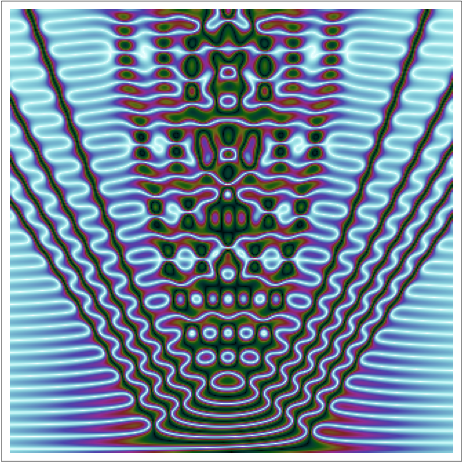Exact Solutions of Semiclassical Non-characteristic Cauchy Problems for the Sine-Gordon Equation
Robert Buckingham and Peter D. Miller
Department of Mathematics, University of Michigan, Ann Arbor
Abstract:
The use of the sine-Gordon equation as a model of magnetic flux propagation in Josephson junctions motivates studying the initial-value problem for this equation in the semiclassical limit in which the dispersion parameter ε tends to zero. Assuming natural initial data having the profile of a moving -2π kink at time zero, we analytically calculate the scattering data of this completely integrable Cauchy problem for all ε>0 sufficiently small, and further we invert the scattering transform to calculate the solution for a sequence of arbitrarily small ε. This sequence of exact solutions is analogous to that of the well-known N-soliton (or higher-order soliton) solutions of the focusing nonlinear Schrödinger equation. Plots of exact solutions for small ε reveal certain features that emerge in the semiclassical limit. For example, in the limit ε→0 one observes the appearance of nonlinear caustics, i.e. curves in space-time that are independent of ε but vary with the initial data and that separate regions in which the solution is expected to have different numbers of nonlinear phases.
In the appendices we give a self-contained account of the Cauchy problem from the perspectives of both inverse scattering and classical analysis (Picard iteration). Specifically, Appendix A contains a complete formulation of the inverse-scattering method for generic L1-Sobolev initial data, and Appendix B establishes the well-posedness for Lp-Sobolev initial data (which in particular completely justifies the inverse-scattering analysis in Appendix A).

A density plot of the cosine of one of the semiclassical solutions of the sine-Gordon equation.